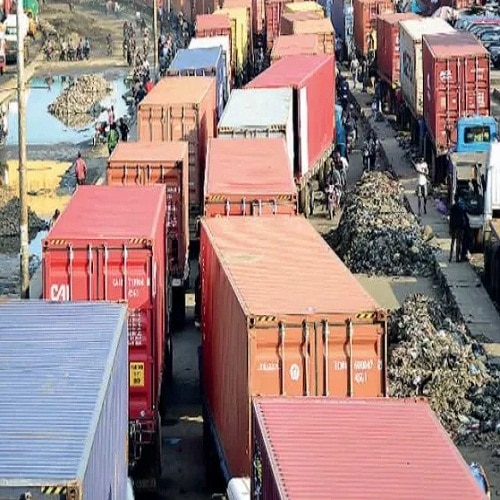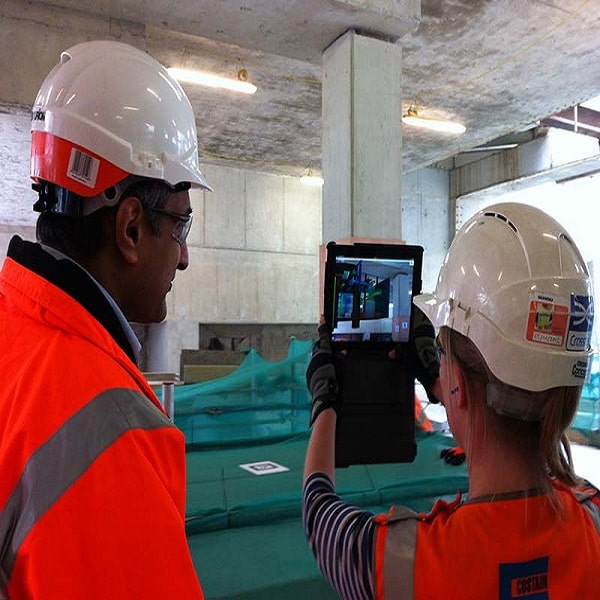The arrival of a container vessel over the weekend at the new deep seaport in Lekki and the attendant movement of many trucks into the area offered a glimpse of the fate that befell Apapa, Nigeria’s premier port city that was notorious for traffic congestion for years.
The coming of the vessel, known as GSL Alice, was remarkable. Remi Ogungbemi, chairman of the Association of Maritime Truck Owners, estimated the number of trucks that called at the new port at 500, causing some disquiet for motorists on the Lekki-Epe-Eleko highway.
“This is just a tip of the iceberg in terms of what is going to happen in this area when the seaport becomes fully operational,” Gbenga Olowokere, a property developer, told BusinessDay on phone.
“Though, at the moment, we are seeing the positive side of the new developments here in terms of the rising property values, I have my fear that if not controlled at this very early stage, what will happen here in time to come will make Apapa a child’s play,” he added.
According to the developer, the property market around that area has seen an uptick in terms of demand as both individuals and institutions have been taking position in that area, which is now adjudged as the fastest developing in West Africa.
Until recently when a collaborative effort by the Lagos State government and the Nigerian Ports Authority introduced technology to control movement of trucks, Apapa was a nightmare for motorists, residents and business owners.
In well over 12 years, the premier port city was under siege due to unwholesome activities of trucks and their drivers who besieged the entire area including roads, bridges, streets and any available space in search of cargo business.
As a result of these, Apapa became the worst gridlocked part of Lagos such that even with the economic opportunities it offered, the city was avoided to a point where landlords abandoned their properties, businesses relocated while those that remained became moribund and unprofitable.
GSL Alice was reported to have arrived at Tin-Can port last week where it discharged some of its cargoes and headed for Lekki port on Friday to also offload some cargoes at the new port, which maritime business watchers said signalled the beginning of cargo evacuation processes at the first deep seaport in Nigeria.
Confirming the ‘invasion’ of the new seaport by over 500 trucks, which belonged to members of his group in expectation that they would find business, Ogungbemi said the coming of the vessel with cargoes to Lekki Port was a welcome development.
“Some of our members’ trucks, about 500 in number, have headed towards the port since we heard of the arrival of the container vessel. Some importers have been reaching out to our members about cargo evacuation processes,” said.
Before now, the major cause of the Apapa gridlock was poor infrastructure as reflected in dilapidated roads including port access roads, and lack of holding bay for trucks that were returning empty containers after coming to lift cargoes. The holding bays were converted to other uses after the concessioning of the ports by the federal government.
The absence of alternative routes to the new port as well as holding bay for the trucks is already a major threat to its smooth operation as many of the trucks will be parking on the highway as they did last weekend.
The Lagos State government has, however, said that the Lekki Port would not have the kind of challenge faced by Apapa, and has therefore started the construction of what it calls the Regional Road, which is expected to ease traffic congestion on the Lekki-Epe Expressway.
But, for now, “the problem we might have with the new port is the absence of a truck holding bay. The last time we went to Lekki Port on a visit, the operators showed us a massive land space earmarked for the construction of a truck holding bay. However, as at our last check, nothing has been done on that land; so the plan to build a truck holding bay is still in the works,” Ogungbemi said.
“Without a truck holding bay, trucks calling at Lekki Port will be forced to park on the highways, and this will clog the roads, thus causing traffic chaos. Since the first container vessel arrived at the weekend, some of our members have moved towards the Lekki Port because there are cargoes that will need to be moved out of the ports,” he added.
Source: Businessday










